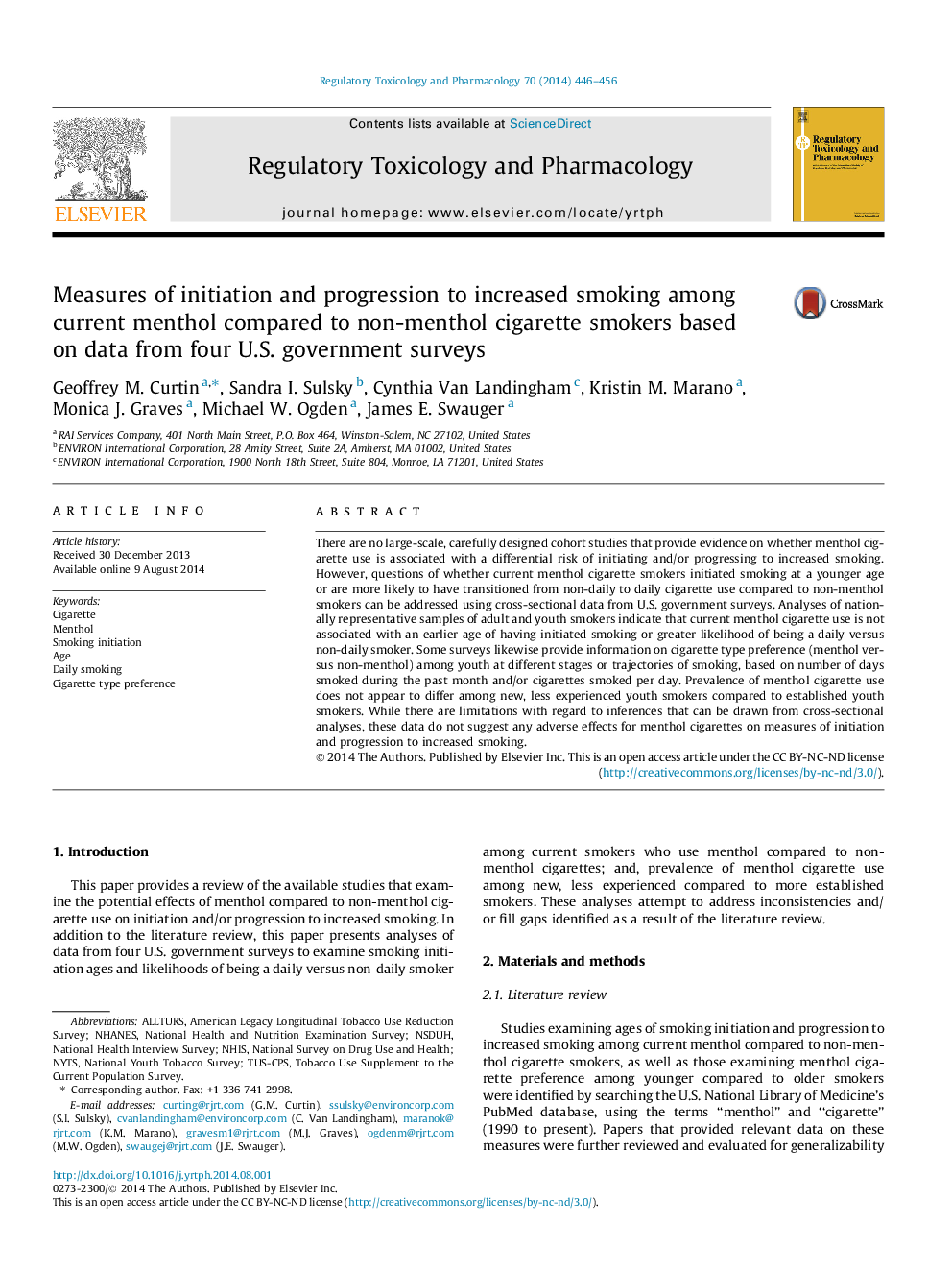| Article ID | Journal | Published Year | Pages | File Type |
|---|---|---|---|---|
| 5856780 | Regulatory Toxicology and Pharmacology | 2014 | 11 Pages |
•Initiation and progression to increased smoking was assessed using U.S. survey data.•Current menthol smokers do not report having initiated smoking at an earlier age.•Menthol cigarette use is not associated with a greater likelihood of smoking daily.•Menthol cigarette prevalence is similar at different stages of smoking progression.•Menthol in cigarettes does not appear to affect smoking initiation or progression.
There are no large-scale, carefully designed cohort studies that provide evidence on whether menthol cigarette use is associated with a differential risk of initiating and/or progressing to increased smoking. However, questions of whether current menthol cigarette smokers initiated smoking at a younger age or are more likely to have transitioned from non-daily to daily cigarette use compared to non-menthol smokers can be addressed using cross-sectional data from U.S. government surveys. Analyses of nationally representative samples of adult and youth smokers indicate that current menthol cigarette use is not associated with an earlier age of having initiated smoking or greater likelihood of being a daily versus non-daily smoker. Some surveys likewise provide information on cigarette type preference (menthol versus non-menthol) among youth at different stages or trajectories of smoking, based on number of days smoked during the past month and/or cigarettes smoked per day. Prevalence of menthol cigarette use does not appear to differ among new, less experienced youth smokers compared to established youth smokers. While there are limitations with regard to inferences that can be drawn from cross-sectional analyses, these data do not suggest any adverse effects for menthol cigarettes on measures of initiation and progression to increased smoking.
